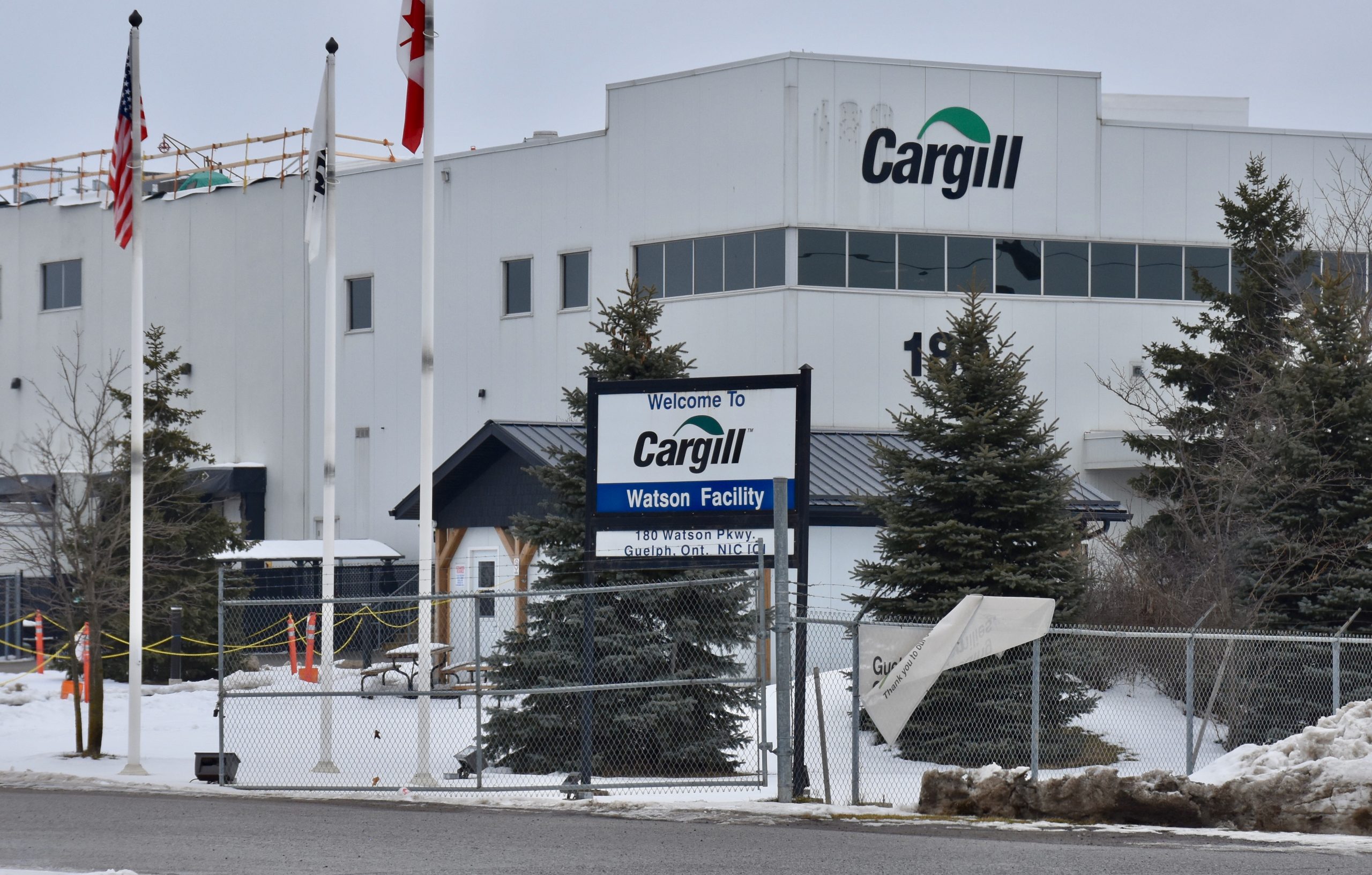GUELPH – While an outbreak of COVID-19 appears to be under control at Cargill’s Dunlop Drive location in Guelph, the company is reporting five employees at its Watson Parkway site have now tested positive.
“Currently there are five active cases at our Watson facility,” Daniel Sullivan, company spokesperson, wrote in an email on Jan. 13.
“At this time, we are not planning to idle the plant, which is a case ready facility. We have conducted contact tracing and are working with local health officials to monitor the situation.
“We have mitigation plans in place to limit the spread of the virus and put safety first.”
At its worst, 82 workers at the Dunlop Drive facility tested positive for COVID-19 and 129 were in quarantine. The plant was temporarily closed on Dec. 17 and reopened on Dec. 29.
Wellington-Dufferin-Guelph Public Health reported one death “associated with” the Cargill outbreak: a 70-year-old man who died on Dec. 30.
Sullivan said the man was a bus driver employed by a company providing transportation services to Cargill’s Dunlop Drive facility.
“We were deeply saddened to hear reports of the fatality,” he said.
Tim Deelstra, spokesperson for Local 175 and 633 of the United Food and Commercial Workers Union, said in an interview on Jan. 13 there are 300 union members at Watson Parkway and about 800 at Dunlop Drive.
He said five union members at Watson Parkway had tested positive and another 20, who had been in close contact with the five, were in isolation awaiting test results.
“At the Dunlop facility, it seemed to be spreading within a department. At Watson Road, these are unique cases believed to have come from the community,” he said – and so far, they’re not spreading within the plant.
“We’re watching the situation and if there’s any need to accelerate our actions, we will do so.”
Sullivan said the company is working with public health to improve safety measures for its workers.
“The protocols we put in place to support our staff at production facilities and in the field—including personal protective equipment (PPE) and physical barriers, increased sanitation, social distancing, temperature testing, travel restrictions and visitor restrictions—continue. We want to work with everyone to focus on keeping people healthy and delivering safe food to people across Canada,” he said.
“Keeping people safe is core to our values. When our friends, colleagues and community are impacted by COVID-19, despite implementing best practices to protect our teams, we are heartbroken.”
Danny Williamson, spokesperson for the local health unit, said with cases on the rise in the community, “we are going to see cases in workplaces, in long-term care and in other places where we gather.
“The takeaway for businesses is to continue to look at ways to reduce the spread of COVID-19 in their workplace.”
Williamson said some questions businesses can ask include:
- are there additional staff that could work from home?
- are they following all public health measures with respect to face coverings, cleaning, hand hygiene and physical distancing?
- are they thinking carefully about lunchrooms and other places where staff tend to gather and ensuring public health measures are in place?”
Deelstra said his union also represents food service workers in grocery stores and long-term care facilities and hopes they will be prioritized as frontline workers as the vaccination program is rolled out.
“We certainly think after health care and long-term care, at the high end of priorities should be grocery store workers. They also put themselves in harm’s way, every day,” he said.




